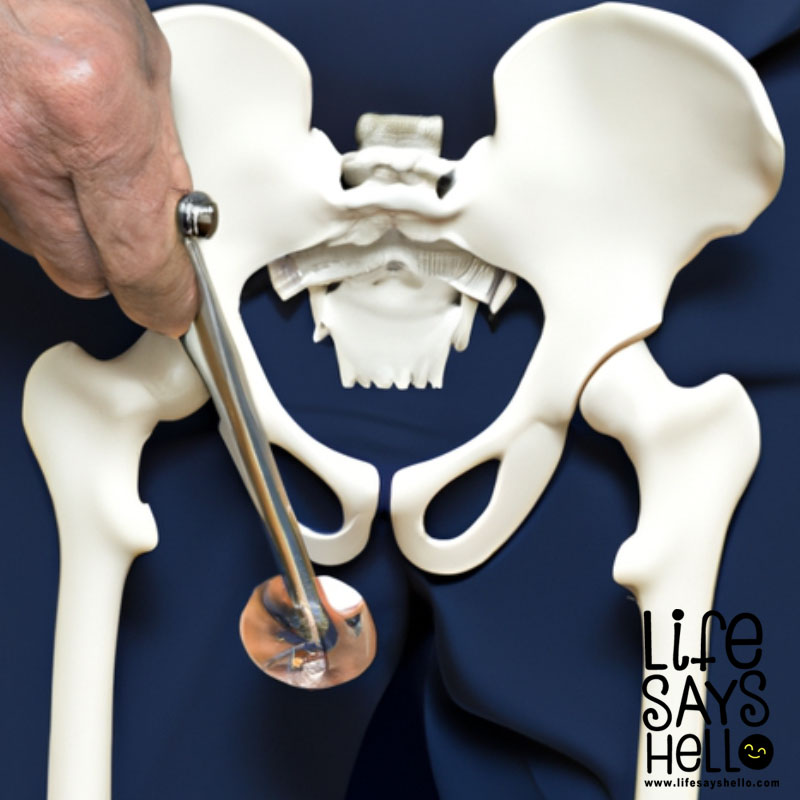What Qualifies as a Disability for Centrelink Benefits?

Have you developed a medical condition that prevents you from working? Are you wondering if you qualify for disability benefits from Centrelink? This guide will walk you through the criteria Centrelink uses to assess claims for the Disability Support Pension and Carer Allowance. We'll cover the medical and non-medical eligibility rules so you can better understand what qualifies as a disability.
An Overview of Centrelink Disability Benefits
Centrelink offers two main disability benefits for Australians who are unable to work full-time due to disability or medical conditions:
Disability Support Pension (DSP) - Provides financial support for people unable to work for at least 15 hours per week due to permanent physical, intellectual, or psychiatric conditions.
Carer Allowance - Provides financial assistance to carers looking after someone with a disability or medical condition. The care receiver must meet eligibility criteria.
These benefits serve as a safety net for Aussies facing disabilities and health issues. They aim to cover basic living costs and compensate for lost wages.
But not all conditions automatically qualify you. Centrelink has strict criteria to ensure only those truly in need can access DSP and Carer Allowance.
Keep reading as we break down the eligibility rules and required medical evidence.
Non-Medical Eligibility Rules for DSP and Carer Allowance
To qualify for disability benefits from Centrelink, you must first meet certain non-medical criteria relating to your age, residency status, income, and assets.
Age Requirements
For DSP, you must be aged 16 or older. There is no minimum age for Carer Allowance, but the care receiver must be diagnosed before age 16 to qualify under certain criteria.
Residency Status
To receive DSP or Carer Allowance payments, you must be an Australian resident living in Australia. Some exceptions exist for temporary overseas absences.
Income and Assets Limits
Your income and assets must be below certain thresholds to qualify for DSP or Carer Allowance.
For DSP, your income must be under 180 per fortnight as a single. Couples can earn up to 324 combined. The assets limit is 268,000 for singles and 401,500 combined for couples. Your principal home is exempt.
Carer Allowance has no income or assets tests. But the care receiver’s income must be below $120,015 if aged under 16.
So in summary, Centrelink imposes age, residency status, income and assets criteria. You must satisfy these rules before your medical condition is assessed.
Medical Eligibility Criteria for Disability Benefits
In addition to the non-medical rules, you must provide evidence that you have a qualifying medical condition. The required medical evidence depends on which payment you are applying for.
Medical Evidence Needed for DSP
To prove your eligibility for Disability Support Pension, you must supply medical reports and records that document your condition.
Centrelink needs evidence that you have a permanent physical, intellectual or psychiatric condition that stops you from working at least 15 hours per week.
Your doctor or specialist must verify that your disability or disorder will persist for at least the next two years.
Examples of accepted DSP medical evidence include:
- Specialist medical reports and letters
- Hospital discharge summaries
- Psychologist reports and IQ testing
- Medical imaging and pathology reports
- Medication lists
- Medical histories and consultation notes
All evidence should be recent and relevant to your current impairment.
Disability Criteria for Carer Allowance
To qualify your care receiver for Carer Allowance, you must prove they have a recognized disability.
The Department of Social Services maintains a list of eligible disabilities, such as:
- Intellectual disability
- Autism
- Cerebral palsy
- Down syndrome
- Muscular dystrophy
- Cystic fibrosis
- Haemophilia
- Blindness
- Deafness
- Acquired brain injury
- Mental health issues
- And more
Their doctor must verify the condition through medical records.
15-Hour Work Capacity Assessments
Centrelink also looks at your ability to work when approving Disability Support Pension claims.
Their assessors determine if your medical condition prevents you from working at least 15 hours per week. They consider your impairment’s impact on various activities.
Sometimes assessors make unrealistic judgments about your work capacity. For example, they may decide you could do certain work despite severe interference from your disability.
If this happens, you may need to provide additional medical evidence to appeal the decision. Show how your condition would prevent 15+ hours of work or training.
List of Recognized Disabilities for Carer Allowance
While Disability Support Pension has broad medical criteria, Carer Allowance relies on a list of recognized disabilities.
To qualify your care receiver for Carer Allowance, their diagnosis must match a disability on the Department of Social Services’ list.
Examples include intellectual disability, cerebral palsy, cystic fibrosis, blindness, deafness, and more. Their doctor must verify the diagnosis with medical records.
The care receiver’s disability must also appear before age 16 to meet certain Carer Allowance criteria.
So in summary, you need current medical evidence that proves your condition and its impact on work capacity. For Carer Allowance, the care receiver’s disability must be recognized by the DSS.
Documents Required for a DSP Application
When applying for Disability Support Pension, Centrelink requires specific documents to assess your medical eligibility.
Be sure to include all the following with your DSP claim:
Medical history records or reports - These provide background on your health and prior treatments. They help establish the history of your condition.
Specialist medical reports - Reports from treating specialists like neurologists, cardiologists, and psychiatrists. These verify your diagnosis and treatment.
Psychologist reports, including IQ testing - For conditions like intellectual disability and autism, IQ testing can help demonstrate eligibility.
Hospital discharge summaries - Summaries explain your treatment, diagnosis, and prognosis after a hospital admission.
Medical imaging reports - Imaging like X-rays, CT scans, and MRIs that reveal issues like spinal disorders and joint damage.
Pathology reports - Lab test results that diagnose conditions through blood work, biopsies, and more.
Medication lists - A list of your prescribed medications demonstrates treatment for your impairments.
Any other relevant medical information - Include anything that provides insight into your diagnosis, treatment, and functional capacity.
Centrelink needs all current medical evidence that is relevant to your condition. This gives assessors a complete picture to evaluate your DSP claim accurately.
Make sure supporting documents span the entire history of your disability. New evidence should demonstrate your current restrictions too.
Comprehensive medical records prove you have an ongoing condition that prevents work capacity despite treatment. This helps demonstrate your need for Disability Support Pension.
Application Processing Timelines
Once you submit your Disability Support Pension application and required medical evidence, how long does it take Centrelink to process your claim?
According to Services Australia, processing times can vary depending on the complexity of your case. However, some common timelines include:
1-2 months is a typical DSP application processing time according to DSP Help. Less complex claims may take 4-6 weeks. More complex claims may take 2-3 months.
3-6 months to receive your decision letter in the mail after Centrelink finishes assessing your claim. This includes their determination on whether you qualify for DSP.
Up to 3 months for Centrelink to process Carer Allowance claims according to Carer Gateway. Decision letters are also mailed after completion.
What impacts processing times? Factors like:
The nature and complexity of your disability. More evidence is needed for complex conditions.
Necessary medical examinations and tests to confirm your condition. These take time to schedule and perform.
Quality assurance reviews of your case. Centrelink audits a percentage of DSP applications.
Waiting on outstanding evidence from your doctor or specialist. Delays extend the process.
Current workload and staffing levels at Centrelink disability units. Claims may take longer during busy periods.
While it's not a fast process, take heart in knowing that most DSP claims are finalized within 1-6 months. Carer Allowance claims tend to process faster than DSP applications as well.
Payment Rules and Waiting Periods
If your Disability Support Pension application is approved, when can you expect your first payment? Are there any waiting periods?
Unfortunately, most disability benefits have a mandatory waiting period from the date you became unable to work. However, the length depends on the payment:
5 month waiting period for Social Security Disability Insurance (SSDI) in the U.S. Your first payment comes on the 6th full month after your disability onset date.
No waiting period for DSP if you have a terminal illness. Payments start immediately if life expectancy is less than 2 years.
No waiting period for Carer Allowance. You can receive your first payment in the same fortnight you apply.
Other key rules and exceptions:
If your disability results from ALS (amyotrophic lateral sclerosis), SSDI benefits can begin immediately upon approval.
SSDI can provide retroactive benefits for up to 12 months before your application date if you were disabled during that period.
DSP backpay is possible if you appealed an initial rejection and got approved later. You'll receive backpay to your original application date.
So in summary, most disability claims require some waiting period before regular payments start. But certain conditions like ALS allow immediate benefits upon approval.
Conclusion: Key Takeaways
Hopefully this guide gave you a better understanding of Centrelink's disability benefit eligibility criteria. Here are some key takeaways:
You must meet non-medical rules for age, residency, income, and assets.
Ongoing medical evidence must prove your disability and its impact on work capacity.
Specific documents are required, like specialist reports, test results, and medication lists.
Processing times vary but typically take 1-6 months.
There is usually a multi-month waiting period before you receive your first payment.
Certain conditions can qualify for immediate payments or backpay.
Disability benefits provide a vital lifeline to Australians unable to work full-time. Make sure your application follows all Centrelink's rules to get approved. Reach out for professional assistance if you need help navigating the process.




Comments